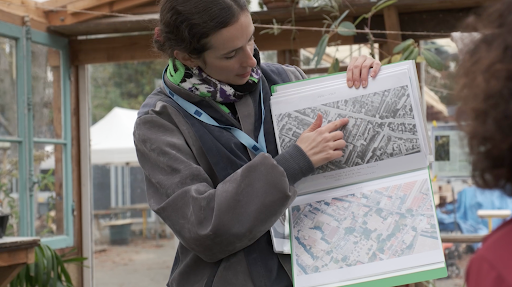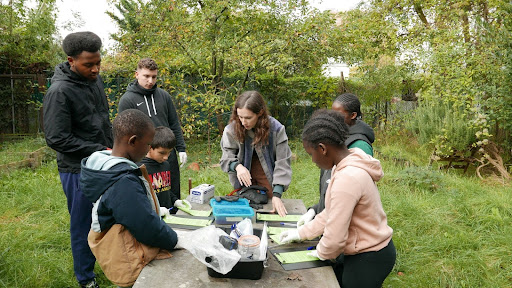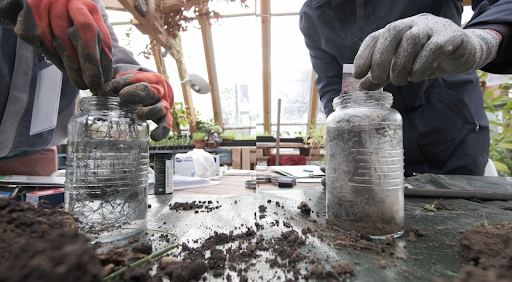Project Description:
The Living Soils Lab is a citizen science initiative aimed at assessing urban soil health with a focus on desealed artificial ground and planted areas aiming to restore ecosystem services and enhance community health and climate resilience in Paris banlieues. Through community involvement, the project engages with innovative nature-based techniques such as phytoremediation to observe the restoration of soil health and enhance ecosystem services, including carbon sequestration, climate regulation, and water management.
By hosting citizen-science sessions in local unprivileged areas, the project empowers local vulnerable communities to take an active role in addressing environmental and health challenges. Participants gain hands-on experience in soil testing, data collection, and ecological restoration, fostering greater environmental stewardship and resilience.
Project Type: Kick Starting Grant
Theme: Justice and Equity, Climate
Mentor:Patricia Barciela
Living soils lab: assessing urban soils in Paris’ banlieues
Author : Johanna Musch (Umarell)
The Living Soils Lab is a citizen science initiative carried out in collaboration with residents from underprivileged neighbourhoods in Pantin. Its goal is to assess the state of urban soils—particularly in recently de-artificialized areas, industrial wastelands, and urban agricultural zones—while exploring their history and current condition. The project aims to highlight the ecosystem services provided by living soils and their role in enhancing climate resilience within the Parisian banlieues.
The urban fabric of the “Quatre Chemins” neighbourhood is a mix of social housing, modest industrial-era buildings, industrial wastelands, and active industrial sites. In recent years, the neighbourhood has seen experiments in urban agriculture on brownfield sites, alongside preserving its historic working-class gardens. However, while residents use these areas, they often have little or no knowledge of the nature and history of the soil beneath them.
From September to November 2024, we conducted six citizen science (CSS) workshop sessions on temporarily occupied brownfield sites and in Pantin’s workers’ gardens. These two-hour sessions invited local residents, guided by our team of architects and designers, to investigate the land’s past uses and assess the soil’s current state.

Historic research on the site previous occupations, Pantin, 2024 © Hugo Demolis
The project engaged around fifty participants, the majority of whom were women from the neighbourhood. These participants, who are also co-authors of the research, are invited to take part in an exhibition on January 8th to present and compare the findings from the CSS sessions. This event will serve as a forum to discuss the state of urban soils and explore actions that local communities can take using their newly acquired scientific knowledge.

CSS workshop session with a community center youth group in the worker’s garden, Pantin, 2024 © Umarell
Thanks to the support of the Impetus Accelerator Program, we were able to finance and develop this project—an achievement that seemed unlikely, given that the Umarell core team is neither affiliated with academia nor part of a scientific lab. The mentoring and training sessions provided by the program were crucial in launching this initiative.
Several organisations and community groups have already expressed interest in hosting workshops at their locations and engaging their members next spring. Subject to securing additional funding, our goal is to refine our protocol and its interpretation in collaboration with scientists. This will empower local communities to better understand and address soil-related issues, ultimately fostering a deeper connection with their urban environment.

Slake test on two samples of soil, Pantin, 2024 © Hugo Demolis



